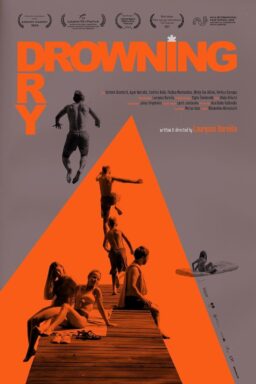TORONTO — Om Puri is in the peculiar position of being famous in the West for films that have never played in India, and being famous in India for films that have never played in the West. The actor makes one film a year in England, and several films a year in India, and he’s on a shuttle between two lives.
You may not know his name but the face might stir memories, from “Gandhi” and “City Of Joy.” His newest British film, which was screened at the Toronto Film Festival this week, is a lovely human comedy named “East Is East.” He plays an immigrant from Pakistan who has seven children with his English wife. They run a fish-and-chips shop together, working long hours. He wants to raise his children in the ways of the old country, but they are assimilating at a blinding pace, and his wife is no comfort, with her British ideas and her long-suffering ways.
The movie is a comedy with social insights, based around marriages both arranged and unarranged, and Puri is a rock solid at its center – not a bad man or even a rigid one, but simply a man who fears losing what he values most.
Puri’s other recent movie is “My Son the Fanatic,” an edgy story about a taxi driver in a Midlands town who works nights for the extra money, and is startled and unsettled to discover that he and a hooker he drives (Rachel Griffiths) seem to be falling in love. At home is a wife with whom he no longer has anything in common, and a son who has turned to what the father considers religious fanaticism – even moving his guru into the house.
“Neither of these films is likely to be seen in India or Pakistan,” Puri said. The sexual and religious content “would not disturb most people, you understand, but there is always that 10 percent who cause trouble.”
Working mostly in the Bombay film industry, Puri made many 1970s films during the boom of the New Indian Cinema, even working with the great Satyajit Ray, “but eventually one looks at the empty pocketbook and begins to reflect about the realities of old age,” he said with a sigh, and so in recent years, he has starred in more commercial films, some of them enormous hits.
The mass-market Indian films I’ve seen, I said, seemed to have a little of everything: drama, romance, music, action, dancing.
His face brightened. “Yes. For one ticket, you get everything. And they shoot them like crazy. Some actors may be making six films at a time. Never a dull moment. Sometimes I work on one film in the morning and one in the afternoon.”
How do you transfer your thinking from one character to another?
He paused as if trying to find a gentle way to describe the films. “Some of the films are…rather broad in their styles,” he said. “Sometimes there is not all that much difference between the characters.”
The sad thing about modern Bombay films, he said, “is that they just throw the songs in whenever they feel like it. In the old days, the songs made a comment on the story. Now it is just, let’s have a song!”
I have admired the immense subtlety Om Puri brings to his Western roles; there are nuances in “My Son the Fanatic” that are crucial in allowing the romance to work at all, and moments between Puri and Griffiths that are based on deep observation. Yet at home he plays in broad melodramas. How does he shift gears?
He spread his palms. “You concentrate on the job at hand.”











